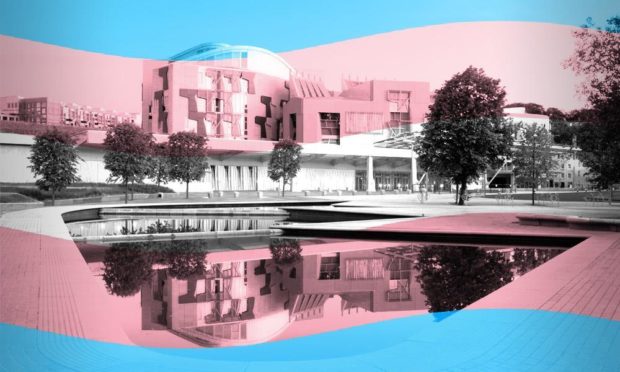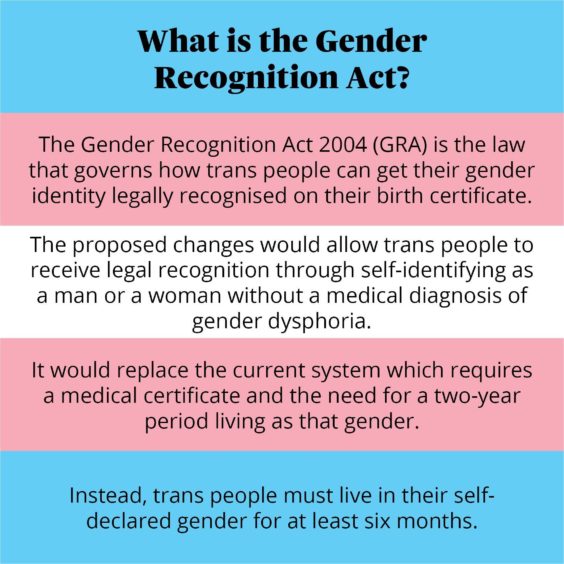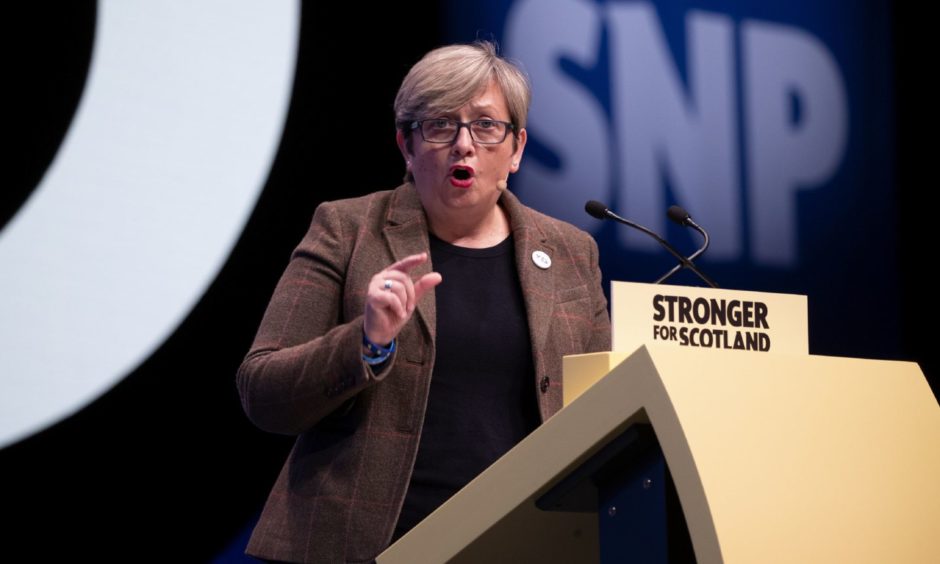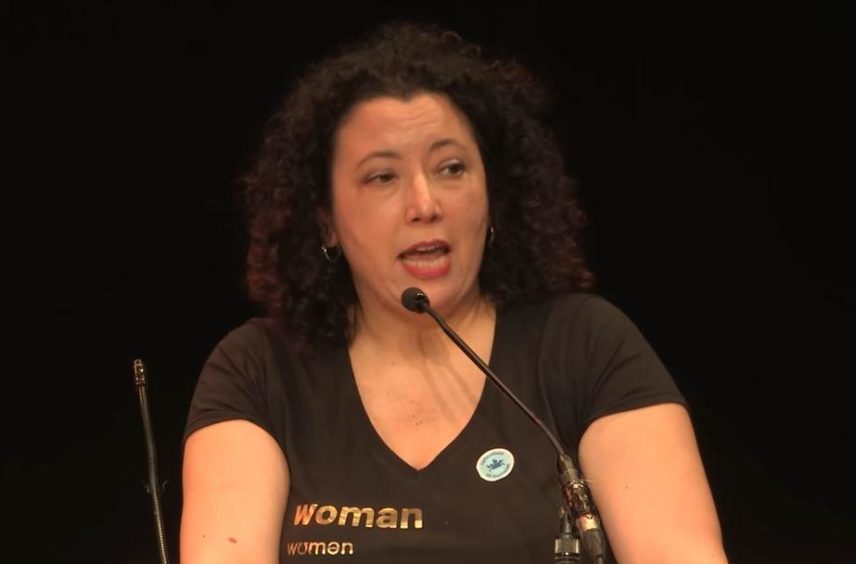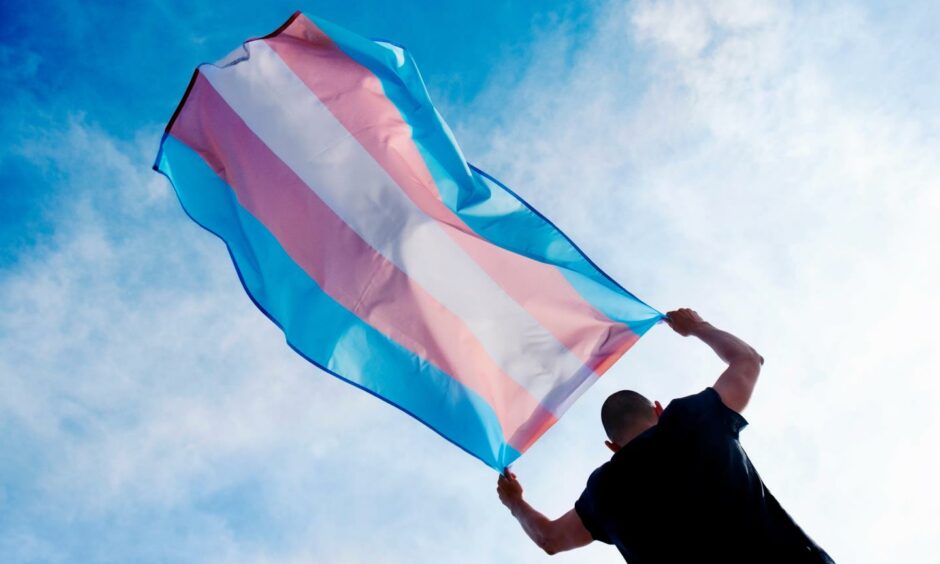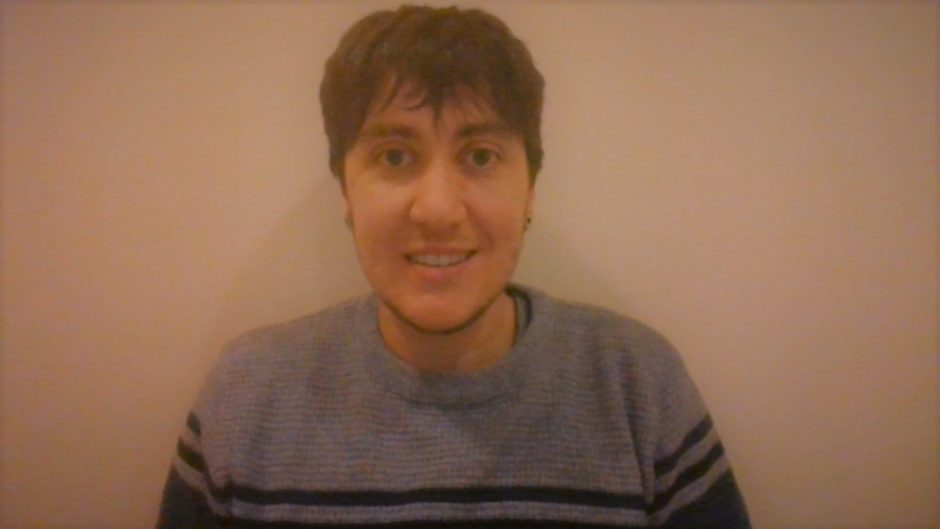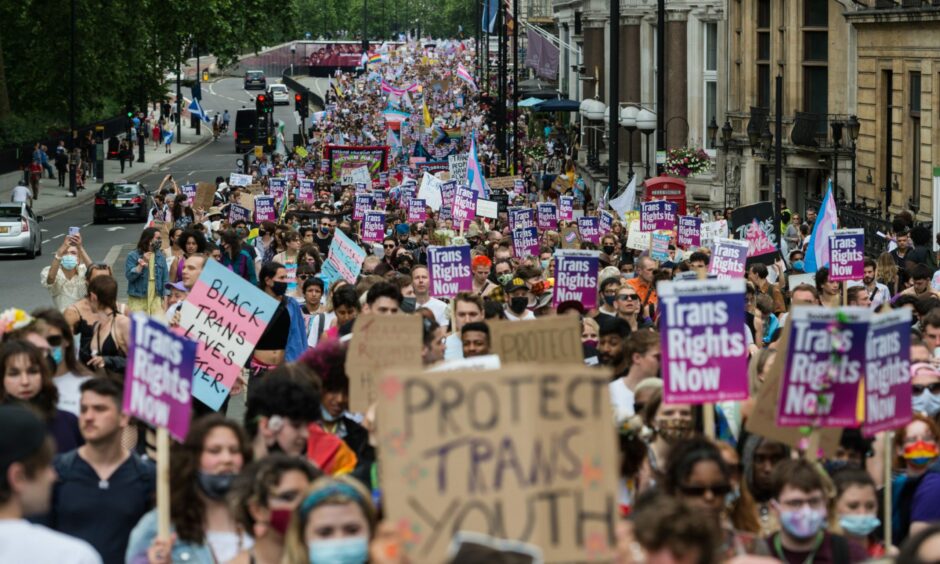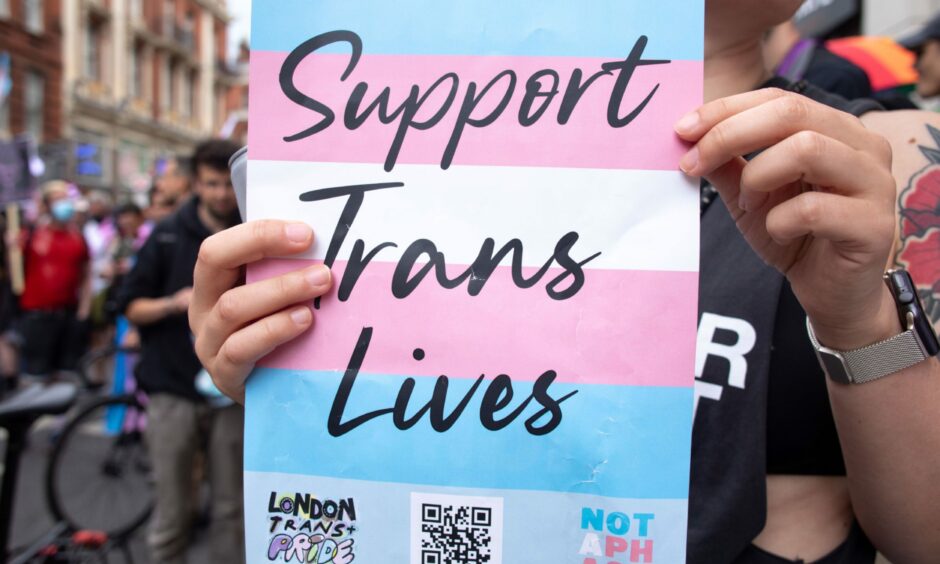The contentious debate over trans rights and gender identity looks likely to become one of the most defining of the new parliament.
The row has already caused internal division within the SNP, prompting Nicola Sturgeon to make an extraordinary personal intervention earlier this year.
Trans issues again fell under the spotlight last week, after Scottish Green members criticised the party’s talks with the SNP over accusations of ‘transphobia’.
An open letter from 155 members to party co-leaders Patrick Harvie and Lorna Slater called on them to challenge the SNP, which they claim has “little to no respect for trans people”.
In a recent SNP election manifesto, Ms Sturgeon reiterated a commitment to deliver changes to the Gender Recognition Act (GRA) at the “earliest opportunity”.
The Scottish Greens, Scottish Labour and Scottish Liberal Democrats all back reform of the legislation in some form.
And it is these changes, delayed due to the Covid-19 pandemic, around which the row in Scotland swirls.
However, this has grown into a far wider discussion about sex and gender and led to an increasing polarisation between trans rights activists and some women’s rights groups in Scotland.
The debate is often characterised as ‘toxic’; one in which each ‘side’ is pitted against the other, and individuals slotted into the category of either ‘trans ally’ or ‘transphobe’.
The growing gulf between the two perspectives appears to have left Scotland at something of an impasse when it comes to making forthcoming changes to the legislation.
However, the Scottish Government has said it will announce its legislative programme “in due course”, with the issue likely to ignite heated discussion in the new parliament.
Division around gender identity
The issue came to a head earlier this year when a large number of younger activists reportedly quit the SNP over concerns the party is not a “safe, tolerant or welcoming place for trans people”.
A prominent equalities campaigner in the party, Teddy Hope, was among those who left, calling for an independent inquiry and claiming the party had become a “core hub for transphobia” in Scotland.
The outcry appears to have prompted First Minister Nicola Sturgeon to make a personal intervention in the trans rights arena.
In a video posted to social media in January, she strongly condemned accusations of transphobia in the SNP and vowed to treat it with zero tolerance.
A message from me as @thesnp leader on transphobia. pic.twitter.com/ewjM7xWLjG
— Nicola Sturgeon (@NicolaSturgeon) January 27, 2021
In the seemingly unscripted video, Ms Sturgeon acknowledged there was an ongoing debate on gender reform within the party but stressed that “no debate can be a cover for transphobia”.
While some may perceive the SNP as having failed to defend trans people, others within the party, including most notably Edinburgh South West MP Joanna Cherry, have been labelled ‘transphobic’ for remarks they have made in the wider gender identity debate.
This is an accusation she – and other female politicians labelled similar – strongly deny.
Instead, they say they are advocating for women’s sex-based rights under the Equality Act and expressing concerns around the self-identification of gender in terms of how this could impact on women.
Ms Cherry lost her role from the party’s front bench team in February, just days after Ms Sturgeon’s video was posted online.
Writing in the New Statesman, the SNP politician accused party colleagues of having “engaged in performative histrionics redolent of the Salem witch trials”.
She claimed holding the belief that “women are adult human females” is “not a response that is popular with some who have the ear of the leadership”.
Indeed, the recent Holyrood election even saw some gender critical feminist voters abandon the SNP and make a new political home in Alex Salmond’s Alba Party.
At a UK level, the debate has been thrust into the spotlight again after a High Court ruling in the Maya Forstater case.
The 47-year-old lost her job in March 2019 after she posted tweets opposing government proposals to reform the Gender Recognition Act in England to allow people to identify as the opposite sex.
During the employment tribunal in April, she reiterated her views that biological sex is “real, important, immutable, and not to be conflated with gender identity”.
High Court judge Mr Justice Choudhury, in a judgement handed down on Thursday, said Ms Forstater’s views “may well be profoundly offensive and even distressing”, but they “must be tolerated in a pluralist society”.
However, he said this “does not mean those with gender-critical beliefs can ‘misgender’ trans persons with impunity”.
Gender Recognition Act
The proposed changes would allow trans people to receive legal recognition through self-identifying as a man or a woman without a medical diagnosis of gender dysphoria.
It would replace the current system which requires a medical certificate and the need for a two-year period living as that gender.
Instead, trans people must live in their self-declared gender for at least six months.
The Scottish Government has been accused of backing away from supporting trans people after it announced last year that work had been “paused” on the gender recognition proposals due to the coronavirus pandemic.
Yet that did not stop the issue falling sharply under the spotlight in the last parliament during the intensely heated debate surrounding the passage of the Hate Crime Bill.
Dubbed the most controversial piece of legislation since the advent of devolution, it heightened the anger of some women’s rights activists due to the absence of sex as a protected characteristic.
Instead, the Scottish Government opted to consult on a stand-alone criminal offence of misogyny, with a working group, led by Baroness Helena Kennedy, to report back in the next year.
Speaking during the debate around the hate crime laws, former Scottish Labour MSP Elaine Smith told MSPs that the bill was “unleashing chilling misogyny and hate against women”.
‘Failure of democratic institutions’
Lisa Mackenzie is a policy analyst who forms one third of Edinburgh-based policy collective, MurrayBlackburnMackenzie.
She says the organisation “almost stumbled” into its work researching the wider issue of gender self-id and women’s rights and never intended for it to become their primary focus.
The former civil servant claims the current impasse is down to the “failure of democratic institutions”, from the level of parliament down to trade unions and other groups, to facilitate debate.
She says those from both sides of the debate have in fact never got round the table together – be that virtually or in person – to discuss the reforms.
“Policy makers are always balancing the needs and interests of different groups and that’s something you need to take into account when you write laws, for example”, Ms Mackenzie says.
“I think the fact is policy makers and law makers have privileged a particular interest group over and above others.
“Policy makers at the moment have just not made space about this so it becomes a conflict about the interest groups themselves, whether it’s women’s groups or trans groups.
…one doesn’t doubt that there is real hatred and discrimination experienced by people who have a trans identity.”
Lisa Mackenzie, policy analyst
“A lot of it comes from a well-intentioned place. I’m very wary of maligning most public servants, I mean I used to be one.
“I think a lot of people are motivated having witnessed the way in which gay people were treated 30 years ago and have been told that the trans rights agenda is the next civil liberties battle.
“These are good intentions and one doesn’t doubt that there is real hatred and discrimination experienced by people who have a trans identity.
“This is not me saying to an ordinary person on the street saying they want to identify as the opposite sex that you can’t say that about yourself, or you can’t express yourself in that way, but it’s about the legal category.”
Data recording
The policy analyst has concerns around public bodies drifting towards a change in the way they record sex and believes this could have a significant impact on future policy-making.
Although no one has reformed the GRA at a UK-level, she says there are “already self-ID policies in place”.
Ms Mackenzie points to the next Scottish census – delayed until next year – which planned to issue guidance that the sex question be answered based on self-defined gender identity.
However, following a High Court challenge against the Office for National Statistics (ONS), it was ruled that in England and Wales, sex cannot be self-identified in the census.
As a result, the National Records of Scotland (NRS) is examining the outcome of the case, before the next census takes place.
Ms Mackenzie claims the NRS are “dogged” in sticking to their initial stance that respondents should answer the sex question on the basis of their self-identified gender.
She says it is “shocking as a civil servant to see organisations drifting into this pattern of recording data without any real thought about what the impact of that would be”.
The policy analyst adds: “The chief statistician came out with some guidance before Christmas that basically said we should no longer collect data on biological sex apart from in some exceptional circumstances, which is just a staggering place to be.
“They’ve settled on that guidance so it’s another battle on our hands to get that changed between now and next March.”
A spokeswoman for the NRS said it “recognises that this is a sensitive topic that has attracted and continues to attract strong and opposing views” and it is “considering the position for Scotland”.
‘Real consequences’
Another area in which Ms Mackenzie believes there could be significant consequences in moving towards self-identification policies is when it comes to recording crimes.
She says: “Around 98-99% of serious sexual offences are committed by men. It really would not take that many female rapes or female sexual offences to make it look like there had been an explosion in female sex-offending.
“The data informs decision-making for policy makers, so if for example it appears there has been an explosion in female sexual offending, you may find that public bodies come under pressure to divert resources away from male sex offending due to this new phenomenon.
“It has real consequences wherever you have a phenomenon that has a very sex-based pattern.”
‘Changing attitudes about trans people’
Vic Valentine, manager of the Scottish Trans Alliance, believes the public conversation around trans rights has failed to paint an accurate picture of what GRA reform seeks to achieve.
Much of the debate so far has focused on trans people accessing single-sex spaces – such as toilets, changing rooms and refuges.
Under the Equality Act 2010, no one should be discriminated against because they are transgender and trans people already access these spaces.
However, single-sex service providers can choose to exclude trans people where there are “proportionate means of achieving a legitimate aim”.
Valentine, a non-binary trans person, says the GRA is simply “about how we update our birth certificates”.
Trans people have been able to do this since the Gender Recognition Act was passed in 2004.
But the Scottish Trans Alliance manager says the reforms would make the process “much fairer, less distressing and reflect changing attitudes about trans people”.
Valentine believes the current requirement to have a medical diagnosis of gender dysphoria can be “quite offensive”.
They say it also creates a “massive barrier” for trans people because of how long many have to wait to access that medical diagnosis.
Waits can be as long as three and a half years at the Glasgow gender identity clinic, where the majority of trans adults will be seen.
Valentine adds: “A lot has changed across the world since 2004 and now the law that we have looks pretty outdated and a lot of the requirements that are still in there to change your birth certificate are pretty onerous and lots of trans people find to be quite offensive.
“In particular, you have to have a psychiatric diagnosis of gender dysphoria to be able to update your birth certificate and the community feels that that really unhelpfully pathologises trans people.
“It kind of reinforces this idea that a trans identity and a trans life and being a trans person is a psychiatric disorder and there’s growing consensus that that really isn’t the case and that being trans is just another aspect of diversity amongst humans.”
‘Lack of understanding’
Valentine holds the view that the debate has become so polarised because there is “misunderstanding” in society around trans people.
They say: “Lots of people don’t necessarily know a trans person; most people aren’t necessarily close to a trans person.
“I think there is a lot of misunderstanding about who we are, what our lives are like and why our identities are so important to us.
“Some of the toxicity is a reflection of a lack of understanding on what a trans life is really like.”
Responding to some of the concerns around the recording of data based on self-id, Valentine says it is “completely true that the reality of people’s bodies and their biological sex is important”.
However, for trans people this can be “quite complicated” because as a group they are “much more likely to have undergone certain medical treatments”.
They say: “If you start insisting on people telling you about their biology at birth, rather than about how they live their life, you’re not getting the information you need about a trans person to treat them in line with how they’re allowed to be treated and have the right to be treated.
“When it comes to trans people you can’t get all that information in one go because we don’t quite fit in, we don’t quite match up with that neat idea that all those things will line up as we expect.”
Scottish Government ‘committed’ to reform
A Scottish Government spokesman said it “recognises the need to listen to all views in this debate”.
He adds: “It is important that discussion about reforms to gender recognition law are informed and considerate and any debate in a mature democracy should be respectful.
“Our continued strong commitment to advance equality for women and to protect women’s rights is not impacted by our support for trans rights.
“We strongly support the rights or protections that women currently have under the 2010 Equality Act, including the single sex exceptions and our proposed reforms do not affect this.
“We remain committed to reforming the Gender Recognition Act and improving the lives of trans people who continue to suffer poorer outcomes relative to the wider population.
“We will announce our legislative programme in due course.”
